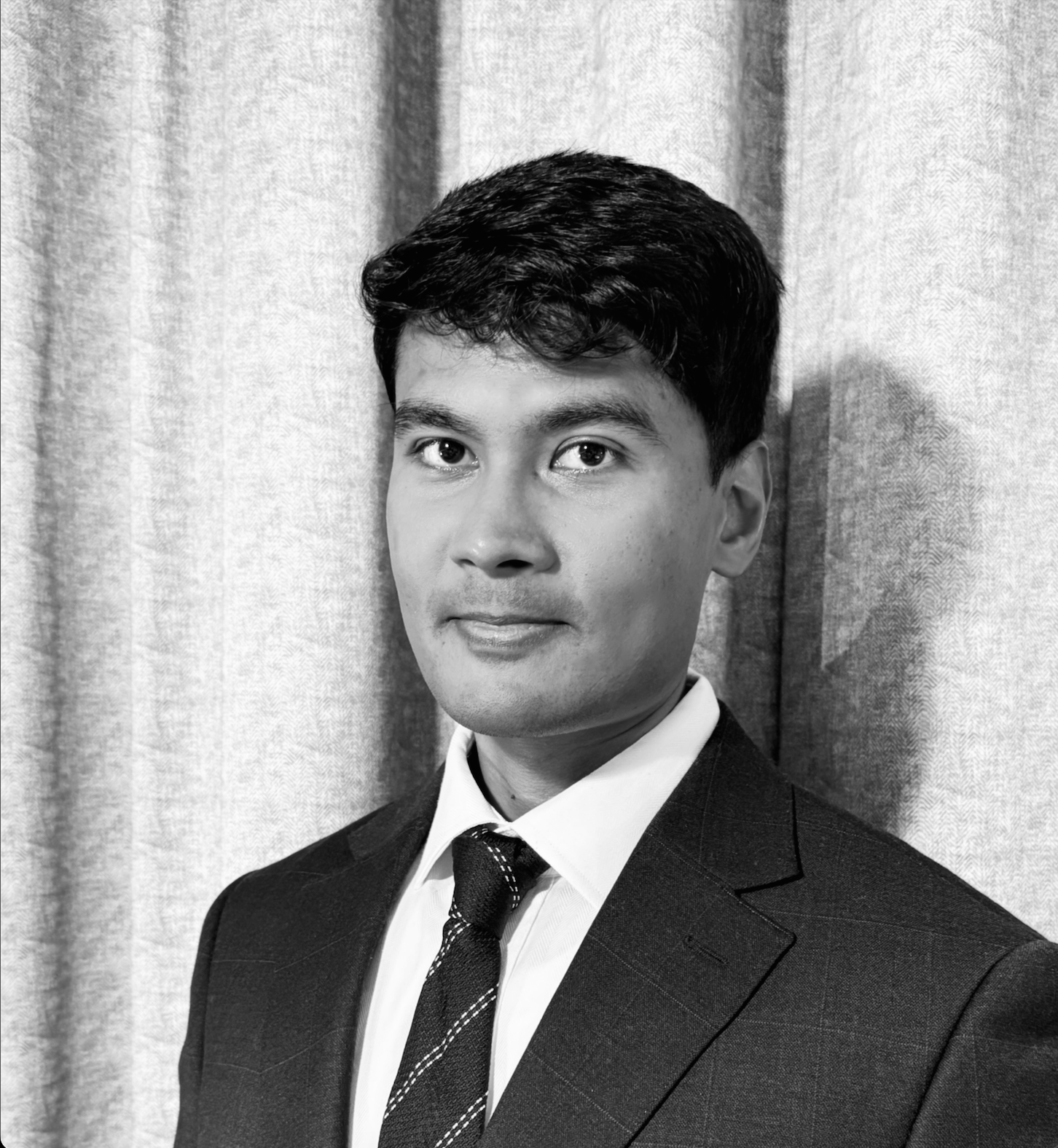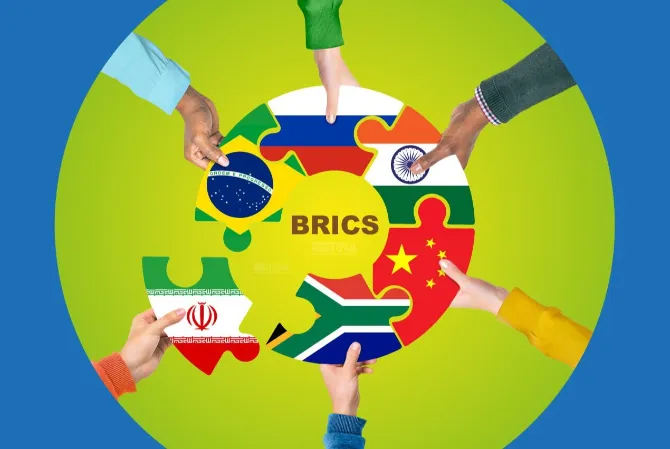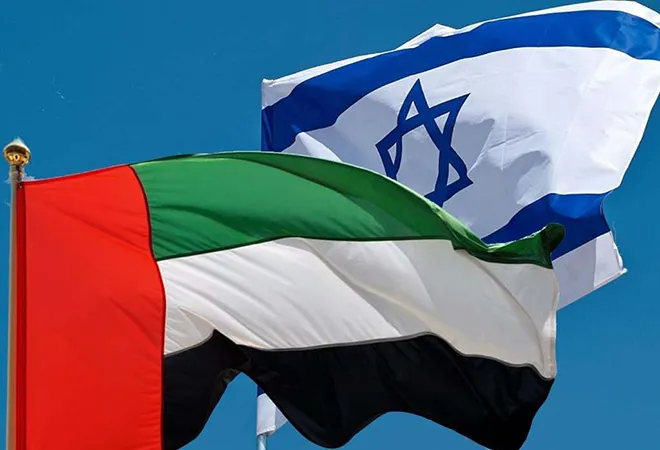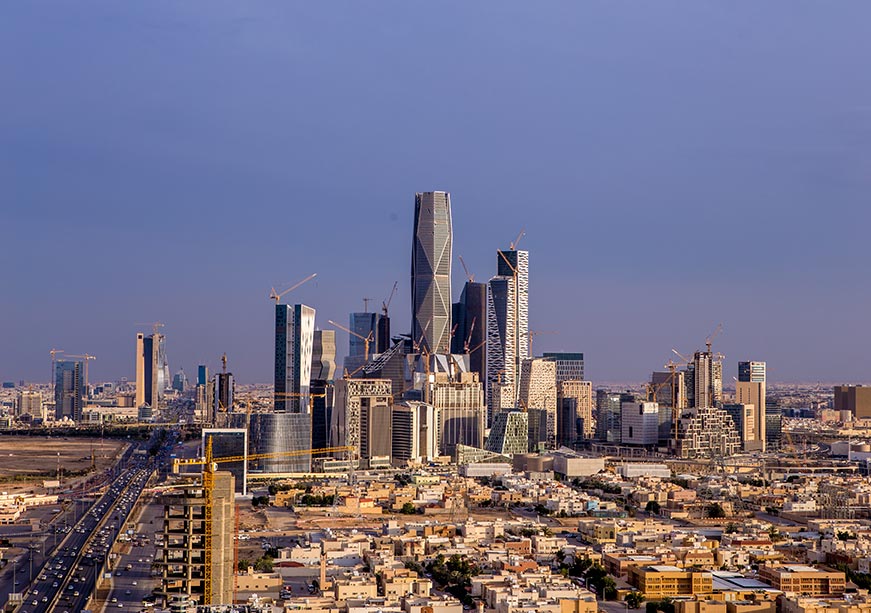The world is witnessing an arms race for technological superiority reminiscent of the Cold War between the United States and the erstwhile Soviet Union in the previous century. Although the players have changed, the race towards grasping the first-mover advantage for achieving “AI supremacy” or “Quantum supremacy” is ushering in a new era of global competition, rivalries and potential partnerships. Integrating AI into global value chains is now a determining factor for economies aiming to capitalise on the AI revolution. Major capital holders like the United Arab Emirates can cement their position in the MENA region by leveraging their economic strength, strategic location and technological expertise. On the other hand, resource-rich geographies like Africa are facing difficulties in promoting AI development due to investment bottlenecks in tech infrastructure and capacity. The 2024 Government AI Readiness Index by Oxford Insights identified Sub-Saharan Africa as a ‘nascent’ market for AI development due to the uneven distribution of digital services and internet availability. This digital divide between the Emirates and the larger African continent can be bridged through strategic investment in key nodes of the AI development pipeline that balance the UAE’s tech ambitions with African concerns such as local capacity-building and data sovereignty.
Africa’s AI landscape
Recognising the need to invest in the AI sector, the African Union (AU) as well as various African countries are developing Africa-centric AI policy frameworks. In 2024, the AU released the Continental Artificial Intelligence Strategy (CAIS) proposal aligning with the AU’s Agenda 2063. The proposal highlights the need to promote growth in AI development for key sectors like agriculture, healthcare and education while mitigating risks such as foreign dependency, privacy violation and job displacement. Countries like Ethiopia, Rwanda, Senegal, Nigeria and South Africa have also released their respective national AI strategies. According to the AU CAIS, three areas require policy focus:
AI skills development: The CAIS highlights the need to integrate AI into the education pipeline starting from primary education through to higher education to foster “talent capabilities.” However, the integration needs to follow regional sensibilities as stated by Ministers from Southern African countries during the 2022 UNESCO-Southern Africa sub-Regional Forum on Artificial Intelligence (SARFAI) insisting on the need to develop “Africa-centric AI curricula” based on heritage and indigenous knowledge systems. The CAIS also identifies limited awareness of AI in the workforce as the biggest inhibitor to AI adoption and suggests government investment in up-skilling and re-skilling programmes at workplaces.
Data availability: Factors contributing to the low availability of high-quality and large datasets are attributed to “affordability, limited skills and lack of content that appeals to users.” By 2022, Sub-Saharan Africa had the highest percentage (19%) of unconnected populations living in areas without mobile broadband globally. Ngozi Okonjo-Iweala, Director General of the World Trade Organization has stated that this digital divide can further exclude rural and underserved communities from AI-driven benefits. Additionally, the under-representation of African languages on the internet and digital systems creates a barrier to data collection and analysis. Authors of the CAIS have attributed the proliferation of English language AI models to the hegemony of advanced countries that “threatens African cultural systems and linguistic diversity.”
AI infrastructure and HPC capacity: Access to HPC systems, in addition to material resources and AI-startup ecosystems, is critical for training AI foundation models. The Toubkal in Morocco is the only supercomputer on the continent, indicating a limited availability of computing required to develop AI at scale. Sparse data collection coupled with computing creates a feedback loop as developers “need data to develop and grow their infrastructure, and they need infrastructure to collect and analyse data.” Regarding data collection and distribution, the CAIS notes that only 10 percent of the data centre demand is met in the continent. Africa has over 150 data centres mostly concentrated in countries like Nigeria, Kenya, Mauritius and South Africa. 70 percent of the IT load in the continent is accounted for by the South African market with around 300 megawatts of live supply. While the number of data centres is expanding, the growth remains uneven with some countries having more capacity than others.
UAE-Africa AI Corridor
The UAE’s strategic location at the crossroads of Africa, Europe and Asia can facilitate the creation of a technology nexus in the region. The UAE has invested in infrastructure projects in Africa including in ports, logistics centres and green energy projects. The UAE has additionally committed USD 4.5 billion towards climate-related projects in Africa aligning with the sustainable development goals outlined in policy frameworks like the AU CAIS and Agenda 2063. In terms of AI, G42 in collaboration with Microsoft is investing USD 1 billion to construct a geothermal energy-powered powered data-centre in Kenya to run its could platform Azure in the new ‘East Africa Could Region’. The goals of this partnership include research and development of large-language models in Swahili and other local languages along with skill transfer programmes which will be used to develop an open-source large language model trained in Swahili and English.
However, to establish partnerships in the AI sector the UAE will have to compete with players like the US and China that have been actively investing in Africa’s tech sector. China has been encouraging companies to follow a “go out policy” under the framework of its Belt and Road initiative and its component Digital Silk Road initiative. Chinese investment flows into Africa increased from US$ 75 million in 2003 to US$ 5 billion in 2021 and China has further pledged US$ 51 billion to African infrastructure projects over the next three years. On the other hand, the recent US investments include the establishment of the Digital Transformation with Africa government initiative launched in 2022 that helped create pledges of US$ 800 million aimed at accelerating the digitalisation of Africa.
Investment in Africa will require precision as there is widespread discontent in African countries regarding conditional foreign investment, labour exploitation by foreign tech companies, data sovereignty concerns and foreign tech giants undercutting domestic enterprises. Foreign tech and AI companies are seen as not prioritising national development goals and even contributing to the exclusion and oppression of underprivileged groups. According to Seydina Moussa Ndiaye, a member of the UN High-Level Advisory Body on AI, the West-centric approach to AI development raises concerns about “digital colonisation.” To ensure sustainable collaboration, a UAE-Africa partnership will require a measured approach.
Recommendations
Due to the international scramble for African rare-earth mineral deposits, the continent has often found itself in disadvantageous relationships with advanced economies. However, there is potential for a mutually beneficial partnership between the Emirates and Africa in the AI sector. The UAE can leverage its capital and expertise in AI development and align its investments with African interests stated in the AU CAIS while gaining access to new markets and resources critical for its own AI infrastructure. The collaboration should include:
Investing in AI infrastructure: Environmental factors like high temperatures are an obstacle to data centre construction in Sub-Saharan Africa. Cooling mechanisms are crucial for data centres designed to offer 99.9 percent uptime. The UAE can capitalise on its experience in developing state-of-the-art liquid-cooling systems and large solar-powered data centres to create sustainable AI ecosystems in Africa. Doing so will also align with the sustainable development goals outlined in the AU’s Continental AI Strategy.
Supporting AI startups: The UAE can set up funding and mentorship initiatives for African AI startups to aid local capacity-building and scaling. Promoting initiatives like the Microsoft-G42 partnership to help AI developers create local language AI models (such as Pawa and InkubaLM) will help preserve linguistic diversity and enable the development of AI systems that are Africa-centric.
Enabling knowledge transfer: The UAE and Kenya signed a memorandum in 2024 focused on investment in AI infrastructure and systems for the creation of a “digital corridor.” This template can be utilised to enable programmes like the UAE AI Camp established in 2018 to create up-skilling programmes in collaboration with schools, universities and research institutions in Africa.
Siddharth Yadav is a PhD scholar with a background in history, literature and cultural studies.











